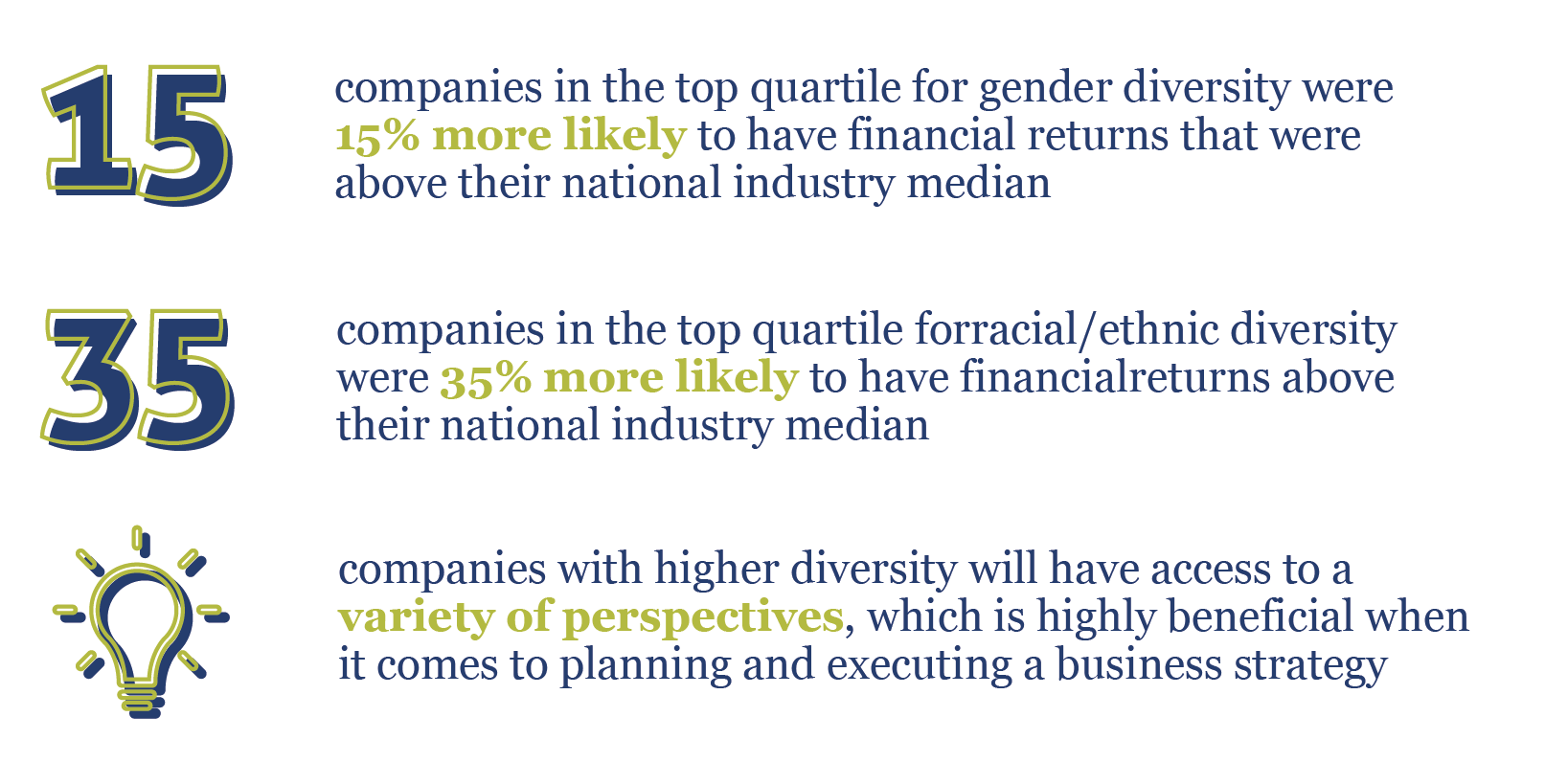
There are a wide range of reasons why a more diverse workforce can benefit employers. From increased innovation and creativity, due to a bigger range of perspectives; to better decision making; to better company culture; and making yourself a more attractive employer, diversity is a business enabler
Research, common sense and a swathe of academic papers show that those businesses who get their diversity and inclusion strategies right are highly likely to reap rewards. Both in terms of a benefit to their working culture and, crucially, their commercial prospects.
It helps to frame the discussion in some key statistics. In their Diversity Matters report, the global management consultants, McKinsey & Co, analysed 366 companies and found a statistically significant connection between diversity and financial performance. Here’s a few of their key findings:

Of course, there is much more research that highlights the benefits of diversity. Two final statistics to add to that already impressive list is from recent research by Josh Bersin that found that inclusive companies are 1.7 times more likely to be innovation leaders in their market and a recent survey by Glassdoor that found 67% of job seekers argued that a more diverse workforce is important when they consider taking a job.
And of course, we are a recruitment consultant, so one of the key aspects from our perspective is the importance of inclusive recruitment. So, why you should be truly inclusive in your recruitment policies?
What does inclusive recruitment mean?
At its heart, inclusive recruitment is about recognising the biases and discrimination candidates can face during the hiring process and designing and implementing solutions to minimise the impact of bias.
Types of bias
Awareness of bias is incredibly important; however, it cannot be trained away, therefore it’s essential to examine every stage of the recruitment process with an inclusive lens and ensure you have removed barriers to underrepresented talent.
Confirmation bias
A type of cognitive bias that involves favouring information that confirms your previously existing beliefs or biases.
Heuristic Bias
This judges someone’s job suitability by superficial factors such as visible tattoos or personal body weight standards.
Affinity Bias
When you unconsciously prefer people who share qualities with you or someone you like.
Conformity Bias
Is the tendency people have to behave like those around them rather than using their own personal judgement.
Intuition
When an interviewer makes a judgement on the basis of his or her “sixth sense”, he is intuitively selecting a candidate or in other words, intuitively rejecting all other candidates.
So, how do you prevent bias?
There are many different ways you use to eliminate boas from your recruitment process. Here are just three of them:
Job Descriptions
Ensuring a job description is in place and that all involved in the hire have agreed to the criteria is one way of avoiding bias as you start the search with a set of skills and competencies in mind rather than the profile of an individual. Additionally, ensure that all language used is gender neutral and reflective of our inclusive culture.
Blind Recruitment
Removing names, gender, age and other types of information such as education and hobbies helps us to focus on skills and prevent biased decisions whether unconscious or conscious.
Job Advertising
Using gender-neutral language in your job advertising is known to fill jobs faster than posts with a masculine or feminine bias and attracts a more diverse mix of people. Additionally, candidates from diverse backgrounds are more likely to apply if our equal opportunities’ statement is visible on your adverts.
The importance of building a Diversity, Equality and Inclusion Strategy
If you don’t have one in place already, we highly recommend you consider building one. We have provided the full research paper from The Recruitment Network below. Within it, you will find more detail on what we have already outlined, as well as an incredibly useful process to create your strategy. To access it, just click here.




